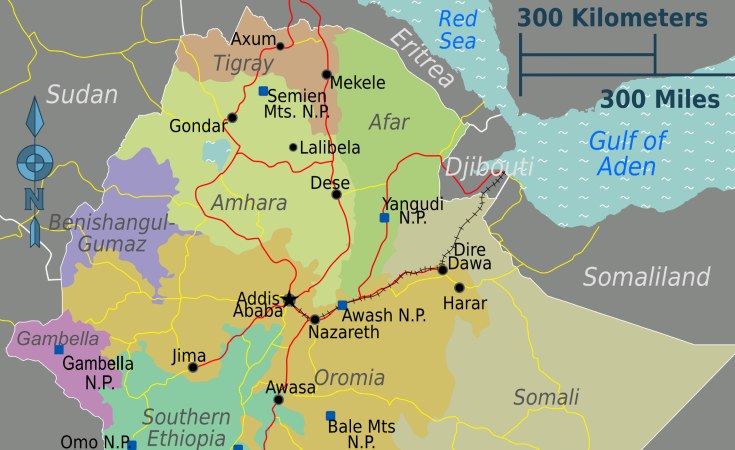Addis Abeba — Despite reports of unrestricted flow of humanitarian aid to the Tigray region since the cessation of hostilities agreement was reached between the Ethiopian government and the TPLF in November last year, internally displaced people (IDPs) in the region, including those sheltered in the capital Mekelle, said they are not receiving adequate humanitarian aid.
On 02 February 2023, the UN OCHA reported that humanitarian access in northern Ethiopia continued to improve over the last two months mentioning the arrival of more than 127,000 metric tons of food supplies to Tigray between mid-November 2022 and 26 January 2023.
"More than 4.5 million people or 83 percent of the total 5.4 million people in need of aid in the region were assisted with food as of 18 January in two rounds of distribution," the report stated, adding that, "more than 162,000 of those assisted were IDPs.
IDPs in Mekelle however, say they haven't received any aid in the past three consecutive months. Solomon Kiros 47, along with his eight-family members, was displaced from East zone, Adigoshu and now sheltered in Mekelle, Seba Kare makeshift camp.
He said the IDPs there didn't receive any humanitarian aid except the 15-kilos of wheat they got some three months ago and they are currently in a severe hardship due to lack of both food and medicine.
"We don't have proper shelters, neither do we have the necessary utensils; we are really in a bad situation. Most of the IDPs don't want to be dependent on humanitarian aid, rather they want to help themselves economically and secure their own food if they are to be returned to their very villages", he said, adding that "in line with the peace agreement, the government must take us back to our homes so that the sufferings ends".
Samuel Teklehaimanot is another IDP who fled the war from Kafta Humera to Mekelle along with his seven family members on 10 November 2020. He is currently sheltered in Adi-Hawsi elementary school. He said he and his family along other IDPs sheltered in the school haven't been getting aid on time.
"This is the third month waiting for humanitarian aid," Samuel told Addis Standard. "Although we reported our complaints to the Zone and to Tigray authorities, there is nothing new up to now, they always say that they will give us soon," he added.
Responding to the complaints of the IDPs, Solomon Tsegay (PhD), Mekelle IDP assistant director, confirmed that the IDPs have not received any aid in the past three months except in the first round. "There is delay in providing them with humanitarian aid caused mainly due to the quantity imbalance between the allotted cotta and the number of IDPs on the ground" he said.
"Based on the lessons we had taken from the first round, we properly compiled the data of the IDPs and submitted it to the World Food Program (WFP) but the officials in WFP are instead using data collected by themselves with data tracking method (DTM)," he added.
Thus, according to Solomon, the disparity between the IDP data of regional officials and that of the WFP is partially contributed to the complaints.
"There are 184,000 new IDPs only in Mekelle but the aid agencies gave us aid only for 139,850 people. There are 44,150 people who are out of the quotas provided to us," Solomon told Addis Standard.
IDPs in Mekelle comprises those who came during the interim administration who are already registered by the NGOs, those who fled due to the intensive war following the regaining control of Mekelle by Tigray forces, and those who fled atrocities of Eritrean troops after the peace deal, the assistant director displayed.
According to the data from Mekelle IDPs center, currently there are 300,000 IDPs only in Mekelle.
In January Addis Standard reported that more than 54, 000 IDPs sheltered at an IDP camp in Abiy-Adi, central Tigray, were suffering from severe shortage of food and medicine supplies. AS


